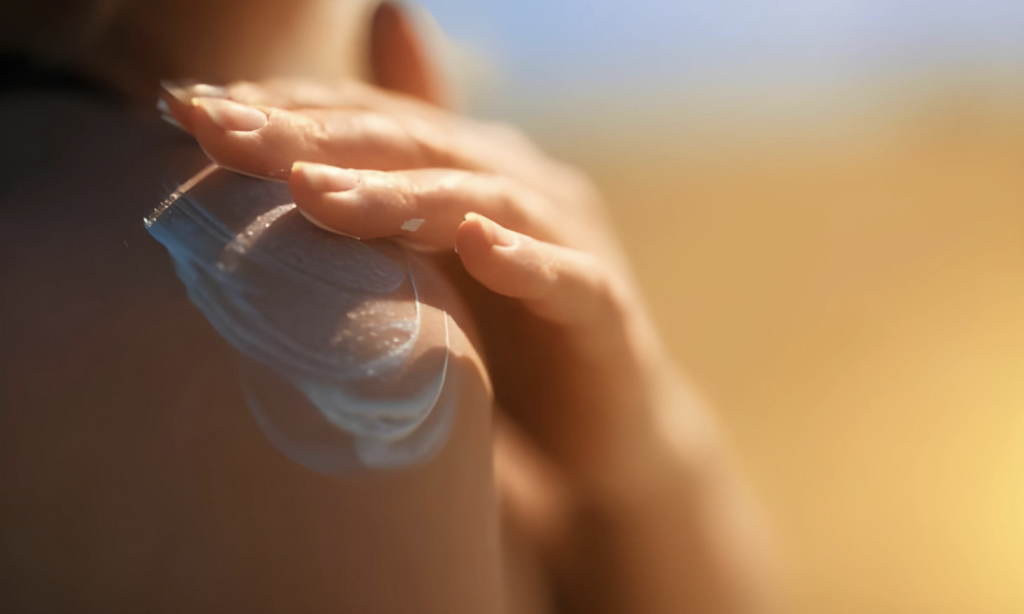Health Conditions
Sun Smart: Tips and Strategies to Prevent Skin Cancer
Our skin, the biggest organ in the human body, serves an important function in shielding us from environmental threats.
However, it is also the most susceptible to issues, particularly from the sun’s harmful ultraviolet (UV) radiation. Skin cancer, one of the most common types of cancer worldwide, continues to be a major health problem. The good news is that many occurrences of skin cancer can be avoided with proper education and aggressive steps.
In this comprehensive guide, we’ll look at expert ideas and guidance on how to effectively prevent skin cancer. From recognizing the risk factors to adopting healthy habits and using sun protection tactics, we’ll look at a variety of preventive actions that can greatly lower your chances of acquiring this potentially fatal condition. Whether you’re relaxing on the beach or running a fast errand, protecting your skin should be a top priority, and with the information offered here, you’ll be well-equipped to make proactive efforts to keep healthy and vibrant skin for years to come.
Understanding Skin Cancer
Skin cancer is a disorder characterized by abnormal cell proliferation on the skin. If not treated, these cells can evolve into cancerous tumors that spread throughout the body. Skin cancers are classified into three types: melanoma, basal cell carcinoma, and squamous cell carcinoma.
Types and Causes
Melanoma is the most severe type of skin cancer, characterized by the uncontrolled proliferation of pigment-producing cells. Basal cell carcinoma and squamous cell carcinoma are less harmful and result from uncontrolled proliferation of basal and squamous cells, respectively.
The most common cause of skin cancer is UV radiation from the sun or tanning beds. Other causes include exposure to toxic chemicals, a compromised immune system, and a family history of skin cancer.
Risk Factors
People with pale skin, light-colored eyes, and a history of sunburn are more likely to get skin cancer. Other risk factors include a history of skin cancer, a compromised immune system, and radiation exposure.
Symptoms and Diagnosis
Skin cancer symptoms include changes in the size, shape, and color of moles and other skin lesions. Other symptoms include new growths, non-healing wounds, and skin texture changes.
To detect skin cancer, a doctor will perform a biopsy, which includes removing a small piece of skin for testing. If the biopsy reveals that the skin cells are malignant, the doctor may order additional tests to evaluate the extent of the disease and the best course of therapy.
Overall, skin cancer is treatable if detected early. It is critical to protect your skin from the sun and other UV radiation sources, as well as to examine it on a regular basis for changes or anomalies.

Preventive Measures
Skin cancer is a preventable condition, and taking precautions can significantly minimize your chances of having it. Here are some methods to help prevent skin cancer and to protect your skin against damaging UV rays:
Sun Protection
One of the most important steps to prevent skin cancer is to protect your skin from the sun. Sunscreen with an SPF of 30 or higher can help block UVA and UVB radiation. It is advised that sunscreen be applied 30 minutes before going outside and reapplied every two hours, or after swimming or intense sweating.
Protective Clothing and Accessories
Wearing protective gear like long-sleeved shirts, slacks, and wide-brimmed hats can help protect your skin from the sun’s harmful rays. Sunglasses with UV protection can also shield your eyes from the sun’s damaging rays.
Avoidance of Tanning Beds
Tanning beds are not a safe alternative to the sun and may raise the risk of skin cancer. It is advised to avoid tanning beds entirely.
Finally, taking actions that help prevent, such as using sunscreen, wearing protective clothes and accessories, and avoiding tanning beds will help lower your risk of acquiring skin cancer. It is critical to protect your skin from the sun and to evaluate it on a regular basis for changes or anomalies.

Regular Skin Care and Checkups
Regular skin care and check-ups are essential in helping prevent skin cancer. By caring for your skin, you can lower your risk of developing skin cancer and detect any problems early on.
Routine Skin Examinations
Regular skin self-examinations are an essential aspect of skin cancer prevention. The American Cancer Society recommends that adults conduct skin self-examinations at least once a month. During a self-examination, individuals should search for any changes in their skin, such as new moles, changes in the size or color of existing moles, and non-healing lesions.
Individuals should conduct a self-examination by looking in a full-length mirror at their complete body, including their back, scalp, and foot soles. They can also use a hand mirror to examine difficult-to-see places like their buttocks and genitals.
Consulting a Dermatologist
In addition to self-examinations, people should get frequent skin cancer screenings from a dermatologist. Dermatologists are medical experts who specialize in diagnosing and treating skin problems such as skin cancer.
During a skin cancer screening, a dermatologist will inspect a person’s skin for signs of cancer. If they find any potential problems, they may suggest more testing or therapy.
It is crucial to highlight that people who are more likely to acquire skin cancer, such as those with a family history of the disease or a history of severe sun exposure, may require more frequent exams.
Individuals who prioritize regular skin care and checkups can play an active part in preventing skin cancer and keeping their skin healthy.

Additional Considerations
Understanding UV Index
The UV index measures the strength of the sun’s ultraviolet radiation. It ranges from 0 to 11+, with higher numbers suggesting a greater risk of UV-induced skin damage. People should be aware of their local UV index and take steps to protect their skin when it is high.
During the summer, the UV index is often greater, particularly between 10 a.m. and 4 p.m., when the sun’s rays are at their fiercest. However, even on gloomy days, UV radiation can permeate through the clouds and produce sunburn and skin damage.
Vitamin D and Sun Exposure
While it is necessary to protect your skin from the sun’s harmful rays, it is also critical to receive enough vitamin D. Vitamin D is required for strong bones and overall health, and the sun provides a natural source of vitamin D.
People with darker skin may require more sun exposure to develop adequate vitamin D levels than those with lighter skin. Even if you’re trying to acquire adequate vitamin D, you should still protect your skin from the sun’s harmful rays.
Other sources of vitamin D include fortified meals and pills. It’s critical to see a healthcare expert about the best strategy to acquire adequate vitamin D while simultaneously protecting your skin from the sun.
Overall, it’s critical to be aware of the UV index and take steps to protect your skin from the sun’s damaging rays. While the sun is a natural source of vitamin D, you should still cover your skin to avoid skin damage and the risk of skin cancer.
Conclusion
In conclusion, protecting your skin from the risks of skin cancer necessitates a proactive and thorough approach. By adopting the expert ideas and advice provided in this article into your daily routine, you can dramatically lower your risk of acquiring this potentially fatal condition. Remember to emphasize sun protection by seeking shade, wearing protective clothing, applying broad-spectrum sunscreen, and avoiding prolonged sun exposure, particularly during high UV hours.
Furthermore, maintaining good skin health by doing regular self-examinations and scheduling routine skin checks with a dermatologist is critical for early diagnosis and treatment of any worrisome changes or lesions. Furthermore, living a healthy lifestyle that includes a balanced diet, frequent exercise, and abstaining from dangerous behaviors like smoking will help to improve general skin health and lower the risk of skin cancer.
Finally, by taking proactive steps to protect your skin and living a sun-safe lifestyle, you may enjoy the outdoors while reducing your risk of skin cancer. Your skin is a valuable asset that requires care and attention, so make a commitment to prioritizing its health today for a brighter, healthier future.
Trusted Health, Wellness, and Medical advice for your well-being



